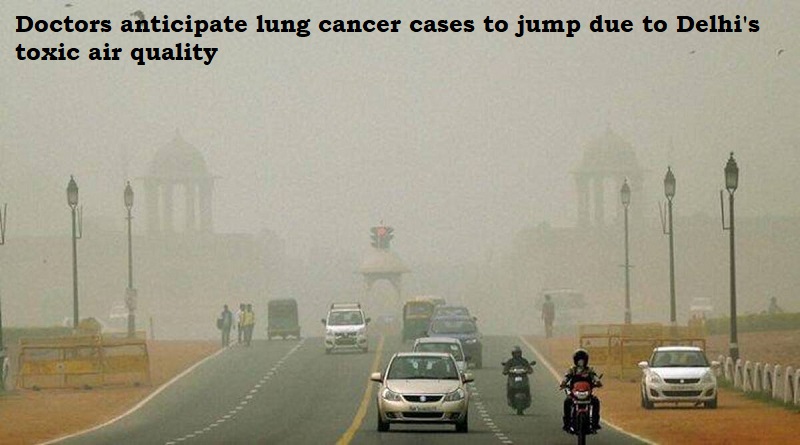
The early morning of October 21 in Delhi NCR was marked by a charming cloud-like appearance and an ashy scent.
According to a recent study from the Central Pollution Control Board (CPCB), Anand Vihar in the capital city has an air quality index (AQI) of 383 and is classified as ‘severe,’ while other regions are classified as ‘extremely poor.’ A healthy amount of air has an AQI under 50. And now, Delhi’s air quality is probably going to get worse over the next few days.
Vehicle exhaust is a significant contributor to Delhi’s air pollution, along with stubble burning in Punjab, Haryana, and Uttar Pradesh during this time of year. While doctors advise adhering to safety measures to avoid breathing in the toxic air, they further anticipate an increase in cases of lung cancer.
‘Over time, breathing in small particles released into the air can lead to cancer. Small particles can get trapped in the lungs. A buildup of these particles can cause damage to the cells of the lungs, leading to inflammation. These changes may cause the cells of the lungs to grow uncontrollably,’ says Dr Avi Kumar, Senior Consultant, Pulmonology, Fortis Escorts Heart Institute, Okhla Road, New Delhi.
Despite the average patient age for lung cancer being 50 and older, younger patients have also been identified, according to medical professionals. Dr. Neetu Jain, Senior Consultant, Pulmonary & Critical Care, Sleep Medicine, PSRI Hospital, New Delhi, notes that female patients, in particular, are younger than male patients.
A report on the potential link between air pollution and lung cancer in never-smokers was published last month by researchers at the Francis Crick Institute and University College London who were supported by Cancer Research UK.
‘The same particles in the air that derive from the combustion of fossil fuels, exacerbating climate change, are directly impacting human health via an important and previously overlooked cancer-causing mechanism in lung cells. The risk of lung cancer from air pollution is lower than from smoking, but we have no control over what we all breathe,’ said Charles Swanton, the Francis Crick Institute and Cancer Research UK Chief Clinician, London, UK, who presented the research results at the ESMO 2022 Presidential Symposium on September 10.

Post Your Comments